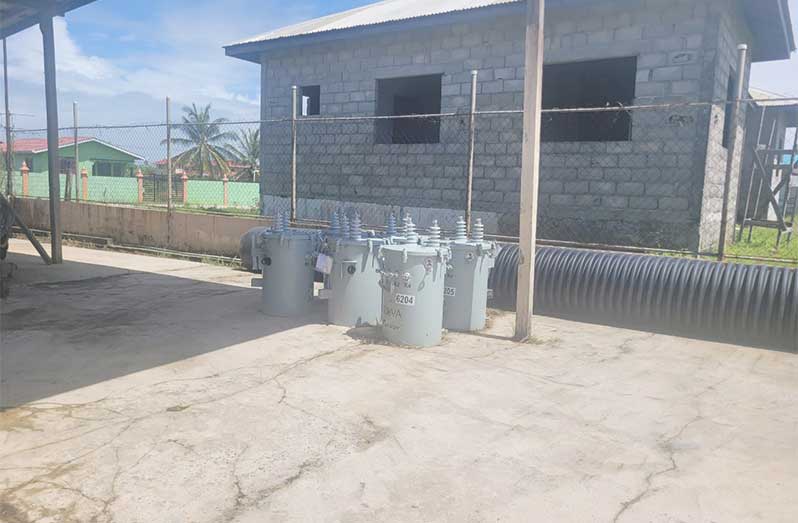-community development advancing as distribution of 500 house lots gets underway
FOUNDED in 1957, the Hopetown Co-operative Society has become a model of grassroots development, with investments in land distribution, agriculture, transportation, and skills training backed by the Government of Guyana.

Located in Region Five (Mahaica-Berbice), the Hopetown Co-op is doing more than it ever has, and is celebrating those milestones this Co-op Week with the Ministry of Labour under the theme, ‘Cooperatives: Driving Inclusive and Sustainable Solutions for a Better World’.
The most recent ambitious effort the co-op has embarked on is its newest housing project, which currently has some 500 house lots. Executive member of the co-op, Andy Webster shared that this is among the most ambitious ventures by the co-op and brings the total number of co-op-allocated lots to more than 2,000 since its inception.
Andy Webster, a long-standing member of the executive committee, has lived in Hopetown his entire life, and recalls how originally the society, now called the Hopetown Multipurpose Co-op Society, began with the renting of farmlands. “Rice was embarked upon since the co-op formed,” Webster explained. “And when the need presented itself, we further extended, and we went to get leases for the land, so the co-op was able to facilitate and give to its members more acreage,” he added.
Today, the co-op supports over 700 members and runs multiple services. Apart from agriculture, the Hopetown Co-op also works in various other areas, particularly business ventures. “We have the wash bay. We have the rental services, party rentals, heavy-duty rentals for things like renting a tractor. Transportation services, renting of big buses, and we have rice land rentals. We rent and we sell house lots,” he said.

Webster said these changes reflect not just the growth of the co-op but also the development of the three communities it covers: Hopetown, Onderneeming, and Catherinas Lust.
Highlighting the village’s growth and the co-op’s evolving role, Webster shared that, “Now you find that persons are qualified and want to open a business. People are opening supermarkets, and we even have a member who had his own private school.”
He added that, “Agriculture is still going and developing, but more young people are into business and are joining the co-op now, that is what we are seeing.”
Land ownership through the co-op has played a big part in community development. As Webster explained, land distribution is managed entirely by the co-op, with support from the Government of Guyana through the Ministry of Labour.
He credits the co-op’s emphasis as a major development stepping stone for the community. Currently, the co-op is working against the weather to complete works on the house lots. According to Webster, works should be completed soon and ready in just a few weeks. The only major hurdle left, says Webster is creating a road that leads to the new lots.
Moreover, through partnerships with the government, many residents have accessed skills training at the co-op. As Webster shared, “We would have embarked on some projects whereby to get persons trained in different skillsets. Like sewing, cooking and whatever. We would have had them certified also, and a lot of people benefitted. We saw plenty of young single parents come and they are now doing their own sewing and so on,” he said.
Webster believes the co-op model should be adopted across Guyana, not just as a means of community, but as a way of collective collaboration and development across the community or region. “Every community should have a co-op. Because with a co-op, each one teaches one; and in that way, you build faster, you benefit from person’s experience at a cheaper cost.”
He added that co-ops provide more than just opportunity; they provide support. “Even if you’re a starter, the co-op will try to link you up with resource courses that you can start off on the right foot.”




.jpg)









